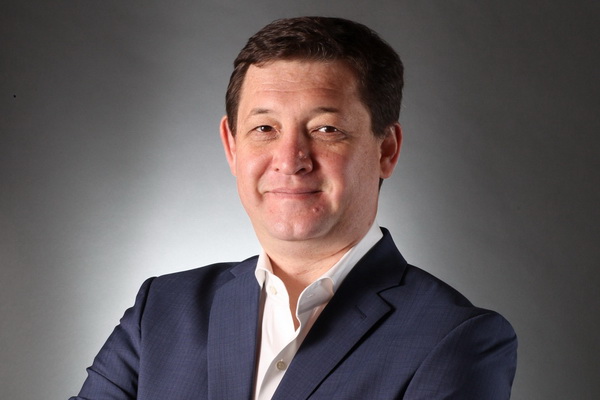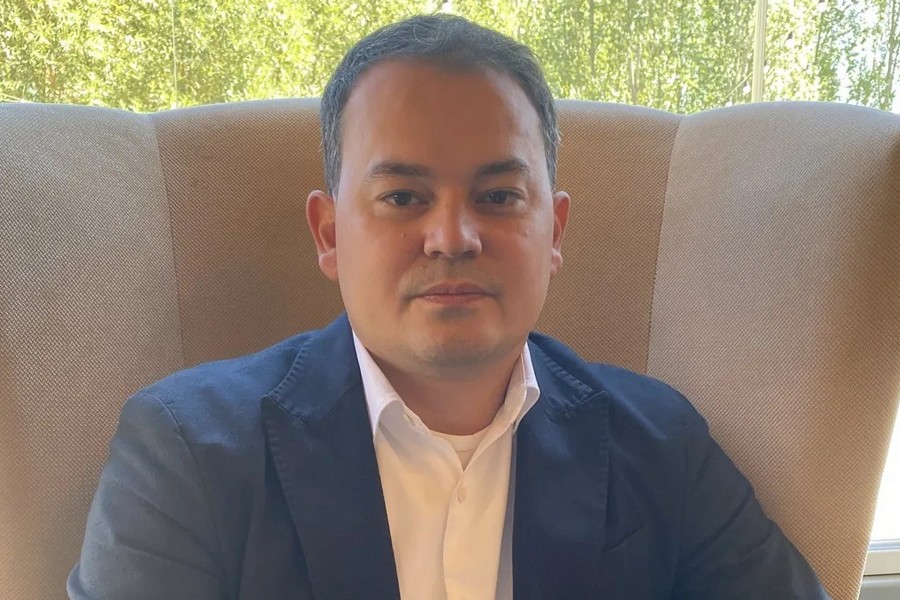CEO of the Autonomous Cluster Fund Innovation Technology Park Sanzhar KETTEBEKOV:
UNDOUBTEDLY MAJOR INDUSTRIAL COMPANIES HAVE AN INTEREST IN COOPERATION, THESE DAYS WE ARE STEADFASTLY WORKING ON ITS FURTHER DEVELOPMENT

The Autonomous Cluster Fund Innovation Technology Park became the managing body of the innovation technology park two years ago. CEO of the Autonomous Cluster Fund Innovation Technology Park Sanzhar KETTEBEKOV talked about the projects and the fund’s objectives with Interfax-Kazakhstan.
- Kazakhstan counts on innovation as the main driver of the economic development. To this end, what objectives and projects are being implemented by your Fund? What is the current performance of Special Economic Zone Innovation Technology Park?
- In 2015, the Kazakh government established Autonomous Cluster Fund Innovation Technology Park, which became the managing body of the innovation technology park – these days it is Tech Garden. Over this period we have done significant work on reformatting the park's activities. A new development strategy has been devised given new requirements for companies to work in foreign markets.
A qualitative update on the participants is being carried out - about 40 companies are excluded from the free economic zone for failure to fulfill their obligations. Of course, not everyone likes such measures but public investments should be used effectively. Currently there are 134 companies in the innovation technology park; more than a third of them are new participants who have joined during our management period. Since 2015, the total revenue of companies has doubled to 132.6 billion tenge (332.99 tenge/$1). In general, I believe that our team managed to lay the foundation for attracting a critical mass of technology companies needed for full-fledged synergy.
Initially the Fund was created for IT companies but then it was difficult to assume that the need for infrastructure would practically disappear and everything would go to the cloud. To this end, the government has made absolutely the right decision to expand the list of companies that may be the park members. This helped lay the groundwork for the Fund to become a real tool for digitizing the main sectors of the economy.
One of the main problems of IT companies is getting large-scale long-term contracts. This is not just about competence, but about scale. Currently 66 companies are participants in the Fund on the principle of extraterritoriality, 46 of them are located in various parts of Almaty. In order to help these companies effectively develop we opened an IT quarter in Almaty. Its main objective is to bring IT companies and innovative start-ups together to achieve a synergistic effect from joint work. This will help increase the competencies of our specialists, allows us to implement complex projects and, of course, to get long-term contracts. By the end of the year already 10 companies will open offices in the IT quarter, another 30 companies or so plan to settle in next year.
- In what direction will the Special Economic Zone develop itself given that IT companies will be based in the IT quarter?
- Currently even the most conservative industries are closely following innovations, which will allow them to be more competitive. Ultimately, this is already becoming an issue of survival. And here we see the tangible role of Special Economic Zone Innovation Technology Park, which can become the very necessary test site for digitization of industry - pilot digitalization projects, model factories, and laboratories. High demand for such solutions is available both in the domestic market and in the external one. Our objective is to shape such an environmental system on the basis of Tech Garden that will allow domestic developers to develop their competences and become part of the chains of suppliers for major customers.
We are working on the creation of Competence Centers in partnership with leading multinational corporations such as IBM, Autodesk, IntelliSense.io, etc. The important point is that the multinational corporations invest not only in competency but also provide for half of the funds for the creation of the centers. This is the evidence that our initiatives are of serious interest to the market. The centers will help implement large and complex projects, for which there is demand with the involvement of the Innovation Technology Park resident companies. And the multinational corporations' participation provides expertise and trust for major customers.
So, in partnership with the British technology company IntelliSense.io, a laboratory for Industry 4.0 is being created. The center’s objective is the introduction of global practice in the continuous process of processing, recovery, metallurgy, training, etc. As much as 75% of working processes in the mining sector is expected to be digitized as the main effect. Also, in partnership with the British innovative powder metallurgy firm Metalysis the R & D Center is being set up to explore the possibility of producing 3D powders and alloys from Kazakhstan’s raw materials, as well as pilot projects for production of metal powder. This area chosen as a priority can guarantee the export niche for Kazakhstan in 4-5 years since at the moment there are still no clear leading countries.
- How much does the international community perceive Kazakhstan as a source of new technologies? How do you interact with them?
- Currently innovations cannot develop in isolation therefore it is important to establish effective cooperation between Special Economic Zone Innovation Technology Park and global innovation centers. So, in order to provide access for breakthrough projects, we have already launched the Tech Garden representative offices in Silicon Valley, Skolkovo, Novosibirsk and we will systematically expand this list. This autumn, on the basis of our technology representative office in Silicon Valley, 10 Special Economic Zone Innovation Technology Park-based companies passed the acceleration training. The training consisted of a series of lectures, professional panels, business master classes, 1-on-1 meetings with mentors, experts, specialists in business development and potential partners. As a result, we received very good feedback from the participants. In particular, they note that training helps have a completely new look at their projects; make appropriate adjustments to the business model for expanding into new markets.
Of course, we still have a lot of work ahead. But it is encouraging that our current results and projects are already achieving recognition at the international level. I will share the good news; following the 2016 performance Special Economic Zone Innovation Technology Park is included for the first time ever in the annual ratings of the best economic zones of Global Free Zones of the Year. This rating is performed by FDi, which is an arm of the influential Financial Times. In 2017, FDI experts assessed the development potential of 57 economic zones and our initiatives received very high scores. Particularly the international programs for domestic and foreign startups based on venture-capital schemes have been highly appreciated. The inclusion in this list is recognition of the measures being implemented by the Kazakh government and the Fund in these areas.
- Tell us more about the measures that are being taken to develop start-ups? In particular, about the program icoStartup.kz - what goals are pursued, what effect is expected?
- We were talking about the importance of creating the innovative environmental system that will help our innovators to develop effectively. Unfortunately, at the moment yet there is no critical mass of innovative companies and start-ups in the country. There is no time to wait when they will be formed naturally either. Therefore, measures are needed to facilitate their accelerated development.
With the support of the Kazakh government we launched the international accelerator program icoStartup.kz. It should be noted that it is implemented within the framework of the implementation of Step 63 of the Plan of the Nation - 100 Concrete Steps initiated by President Nazarbayev. This is Kazakhstan's large-scale initiative aimed at developing domestic and attracting foreign start-ups to the country. The startups will undergo an acceleration program in Almaty, as well as in Silicon Valley on the Tech Garden basis. Financing will be provided through our joint venture fund GVA Alatau Fund. The size of investments in the start-ups will be up to $100,000. By and large by 2020, we will finance nearly 500 innovative start-ups. The main objective is to incubate 50 high-tech and export-oriented companies.
This is a new model for Kazakhstan but tested in the developed countries, a massive injection of innovative start-ups into the market. Foreign start-ups officially register their enterprises in Kazakhstan, employ local labor, promote the entrepreneurial culture development and exchange experiences and knowledge. But the main focus is still on supporting and developing Kazakhstan's start-ups. The involvement of foreign start-ups in this case acts as a catalyst for this.
- Earlier you noted that one of the key problems for technology companies is getting orders from major enterprises. Will it not happen so that with an increase in the number of companies in the market this will get even more difficult? How can these companies be integrated into major projects, are there any specific mechanisms for that?
- Demand for innovative solutions is quite high but domestic offers are still not competitive enough in terms of quality with foreign ones. Therefore, on the one hand, our objective is to grow the critical mass of high-tech companies with an appropriate level of competence. On the other hand, it is necessary to cultivate and consolidate a culture of cooperation between major enterprises and domestic programmers. As for specific mechanisms, Tech Garden has an effective tool that allows the subsoil users to test innovations, and the technology companies to integrate into the chain of their vendors. As you know, the subsoil users have commitments to allocate 1% of the total annual income for the R & D Center. They can do this on their own or through the Fund.
Currently we cooperate with companies such as ERG, Kazzinc, Kazakhmys, Voskhod-Oriel, etc. As many as 54 projects worth 2.3 billion tenge have been already financed under this model, including production optimization, energy efficiency and geological exploration. There are serious projects aimed at introducing digital innovations in the mining and metallurgical sector. In particular, we plan to introduce a special information system to automate the process of mining planning and 3D modeling at JSC AK Altynalmas under the ‘digital mine’ project. As a result, we expect a 5% decrease in production costs, a 10-15% increase in productivity, 100% downtime removal.
The implemented projects are praised by the customers. These days we are examining more complex projects, for example, in the field of powder metallurgy. In other words, undoubtedly the major companies have an interest in cooperation with innovative companies. Now we are working purposefully on its further development.
- Thank you for the interview!
November, 2017
© 2025 Interfax-Kazakhstan news agency
Copying and use of these materials without reference to the source is prohibited
Archive





